What do you get when you combine a 2°C air temperature, a 2°C dew point, frozen ground with snow patches, and nearly-calm winds? Visibility under 100 meters on my commute to the office:
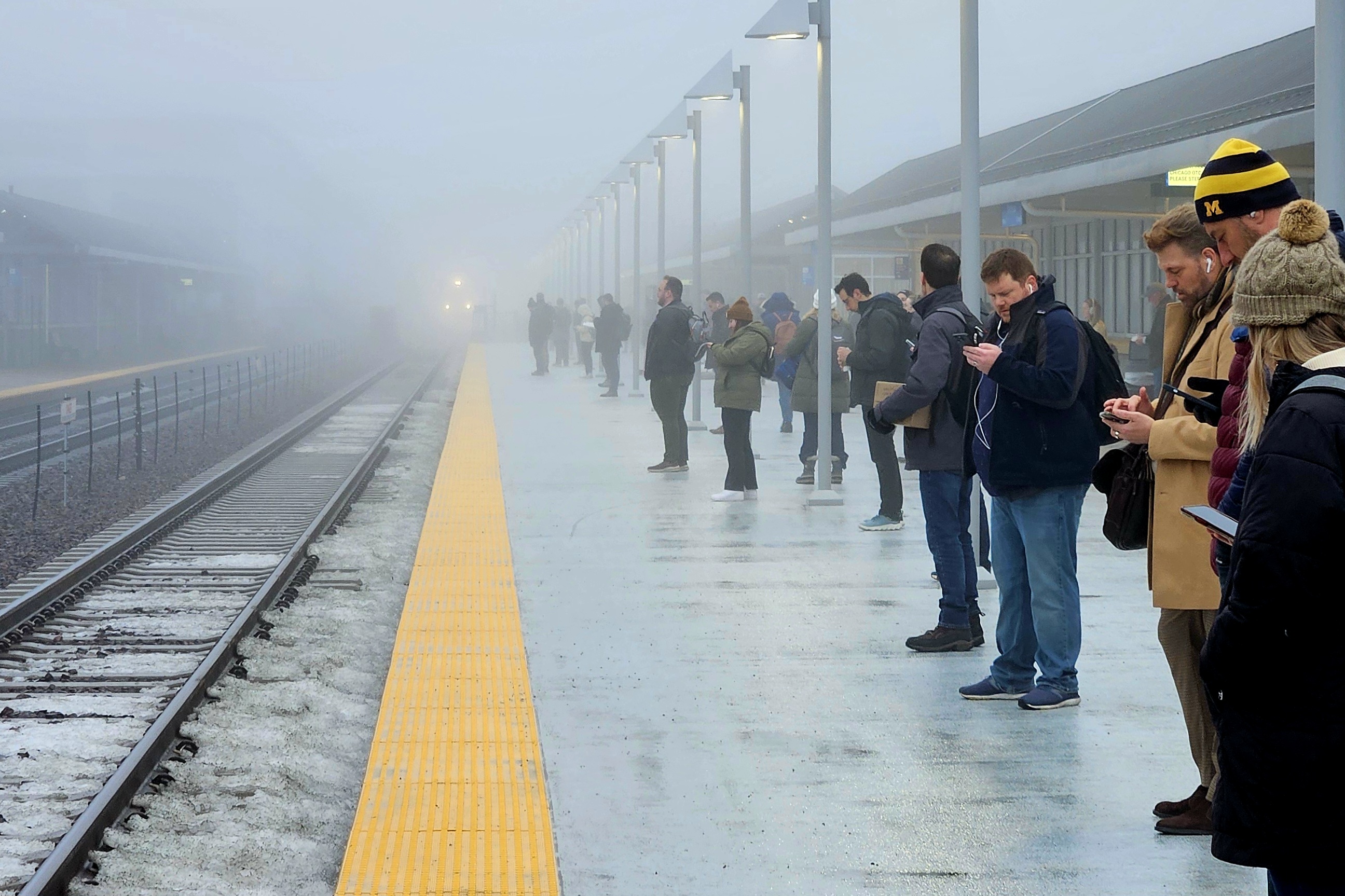
They say we may not see the sun until Wednesday. But they also say it'll be 7°C that day. March came early this year, it seems.
A weather pattern has set up shop near Chicago that threatens to occlude the sun for the next week, in exchange for temperatures approaching 15°C the first weekend of February. We've already had 43 days with above-normal temperatures this winter, and just 12 below normal during the cold snap from January 13th through the 22nd. By February 2nd, 84% of our days will have had above-normal temperatures since December 1st.
Thank you, El Niño. Though I'm not sure the gloominess is a fair exchange for it.
Elsewhere:
Finally, Minnesota-based wildlife photographer Benjamin Olson discovered that a mouse had moved into his car. So naturally, he set up a photo trap. And naturally, it's totes adorbs.
I grabbed a friend for a couple of Brews & Choos visits yesterday, and through judicious moderation (8-10 oz of beer per person at each stop), we managed to get the entire West Fulton Corridor cluster done in six hours. So in a few minutes I'll start writing four B&C reviews, which will come out over the next three days.
Before I start, though, I'm going to read all these stories that have piled up since Friday:
Finally, the Roscoe Rat (really a squirrel) Hole got its own NPR story this morning. And in my social media I saw a photo of someone proposing to her boyfriend at the rat hole. Color me bemused.
Around 7 this morning, the official Chicago temperature at O'Hare went above -15°C for the first time in 81 hours, the longest such cold snap since February 1996:
In the 1996 stretch, O’Hare recorded highs of -20.6°C on Feb. 2 and 3, and of -16.7°C on Feb. 4, according to NWS meteorologist Casey Sullivan.
Sullivan said the longest stretch of temps below -15°C in the area was a period of five days in the 1880s, according to NWS records, which go back to 1871.
“It doesn’t look like we’re going to do that, but it’s unusual, not unheard of,” Sullivan said of the cold streak.
There may be some — albeit slight — relief from the extreme cold on the way in the coming days. High temperatures Wednesday should climb to a high of around -8°C, the NWS said.
Thursday’s high temps could end up near -5°C, and Friday’s high is expected to be near -9°C.
As of 1pm we've gotten up to -9°C, but the sun is out, and we have brisk west-southwest winds, both of which should help. As long as it stays above -10°C I can walk Cassie home from day camp. (I had to drive her yesterday and today.)
The National Climate Prediction Center says the Arctic Vortex will get back to where it once belonged next week:
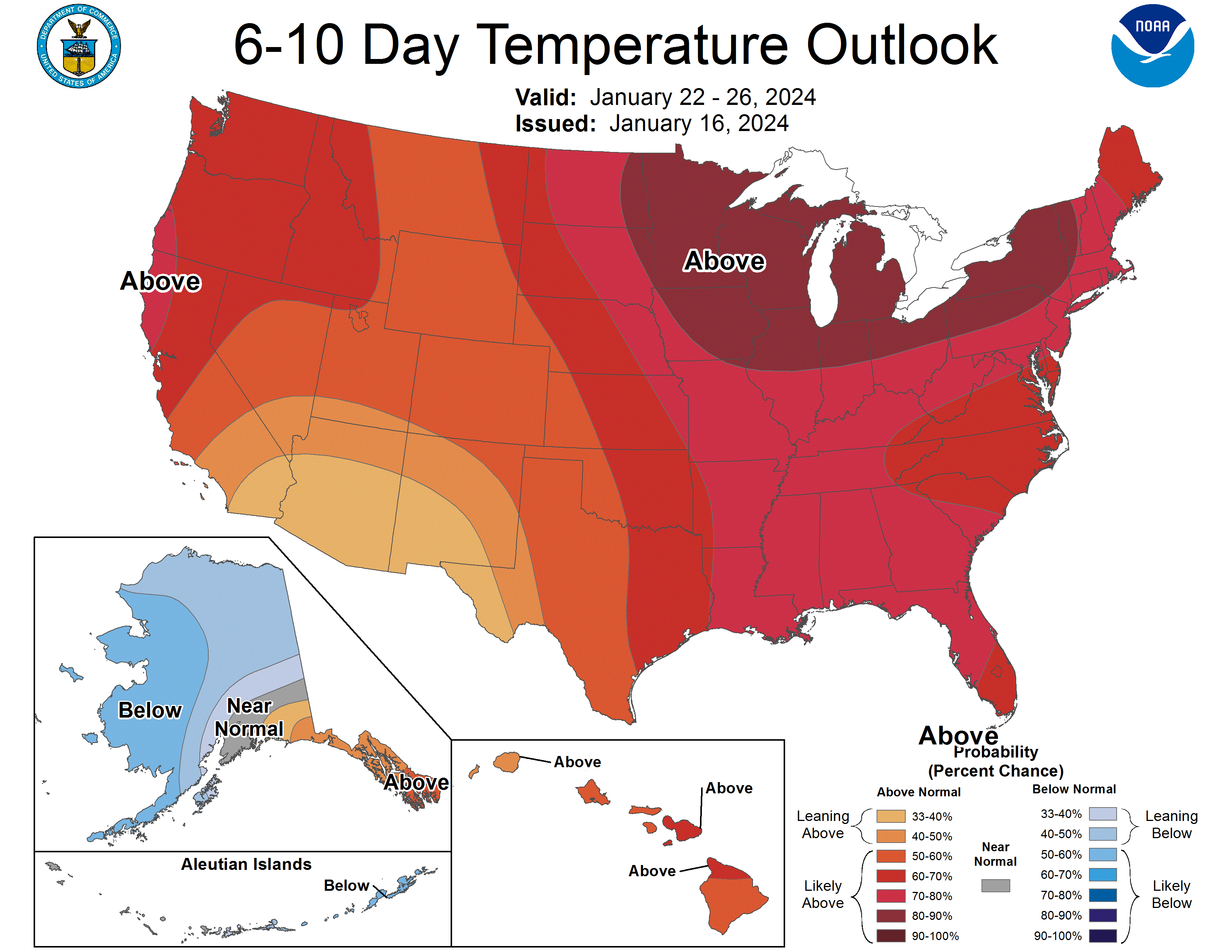
I sure hope so. And if Cassie understood "future" as a concept, so would she.
Looking out my 30th-floor office window this afternoon doesn't cheer me. It's gray and snowy, but too warm for accumulation, so it just felt like rain when I sprinted across the street to get my burrito bowl for lunch.
I do have a boring deployment coming up in about an hour, requiring only that I show the business what we've built and then click "Run pipeline" twice. As a reward for getting ahead on development, I have time to read some of these absolutely horrifying news stories:
Finally, Cranky Flier examines American Airlines' European operations and singles out its heavy dependence on Heathrow as a key reason why its fares trans-Atlantic are lower than other US carriers. Since I am using one of those really low fares to visit Germany next month, I'm OK with American keeping their fares low.
Chicago had its 4th-warmest December in history last month, with temperatures averaging about 4°C above normal. The trend has continued this month as well. That won't completely end tonight, though we may see some snow:
The first “significant” winter storm to impact the Chicago region is scheduled to start Monday night, with meteorologists predicting two to five inches of snow accumulation and wind gusts up to 30 miles per hour across portions of central and northeast Illinois and northwest Indiana.
A winter weather advisory goes into effect at 8 p.m. until noon Tuesday in the Chicago metro area as well as parts of DuPage, Will and Lake counties.
The storm will likely be split into two rounds, according to the NWS. The first will arrive this evening starting around 8 p.m., with much of the snow accumulating in a brief window from 1 to 5 a.m., just before the early morning commute.
Lovely. But a few centimeters of snow won't bother either Cassie or me tomorrow morning, especially if the temperature stays freezing, as forecast.
Next weekend, though, looks like it might feel more like Real Chicago Winter, with temperatures dropping to -13°C overnight Saturday. I, however, will be in the Pacific Northwest, where...dammit. Temperatures will drop to -6°C overnight Saturday. (I thought Seattle was supposed to be warmer than Chicago?)
Sigh:
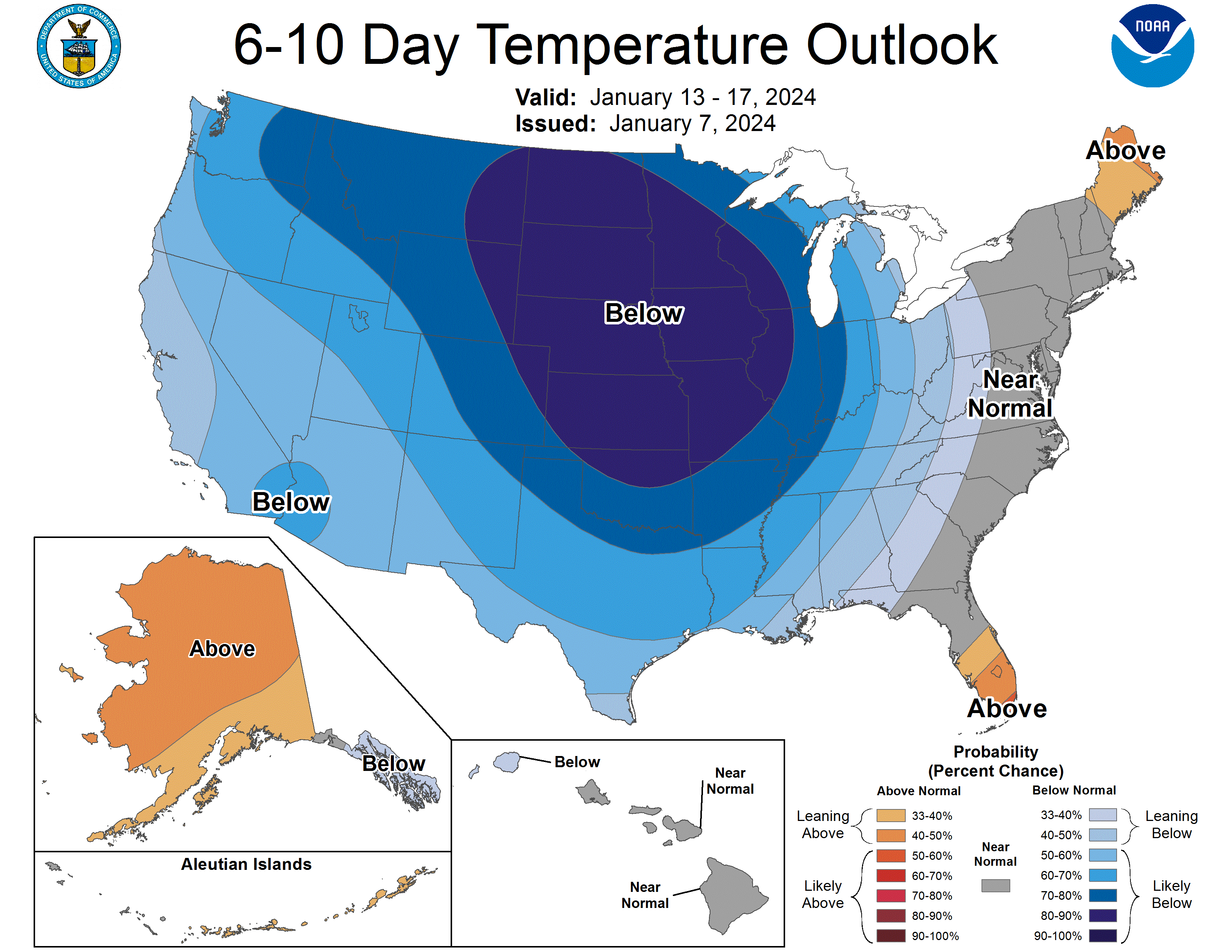
I have to remember that the normal temperature curve for Chicago bottoms out from January 17th to 23rd. So it will get colder this winter. I'll take the win for December and just remind myself that our winters build character.
Though my "to-be-read" bookshelf has over 100 volumes on it, at least two of which I've meant to read since the 1980s, the first book I started in 2024 turned out to be Cory Doctorow's The Lost Cause, which I bought because of the author's post on John Scalzi's blog back in November.
That is not what I'm reading today at lunch, though. No, I'm reading a selection of things the mainstream media published in the last day:
Finally, for $1.7 million you can live inside a literal brick oven. The fifth-floor penthouse in the former Uneeda Biscuit building on Chicago's Near West Side includes several rooms with brick ceilings that were, decades ago, the ovens that cooked the biscuits. Cool. (Or, you know, hot.)
Wouldn't that be nice? Alas, people keep making them:
Speaking of excoriation, David Mamet has a new memoir about his 40 years in the LA film industry, Everywhere an Oink Oink. (Expect to find that on next year's media roundup.) And I still have to read Linda Obst's Hello, He Lied, which I keep forgetting to liberate from my dad's bookshelf.
As I said yesterday, Christmas this year had much better weather than last year, despite the rain. And this morning, it's official: we had the second-warmest December 25th since records began, with a high at O'Hare of 15°C. The warmest, in 1982, hit 17°C.
It's cooled off just a bit today but we don't expect any rain. I managed to get Cassie out for an hour and eight minutes yesterday. Today I actually have to work, but she'll get a full hour at least.
Last year:
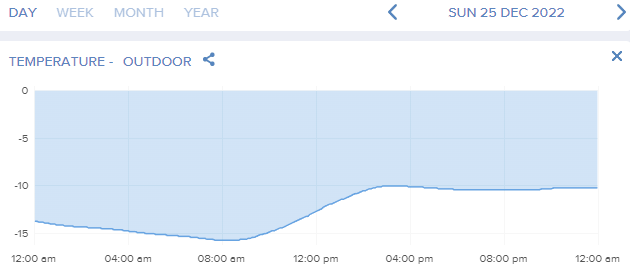
Today:
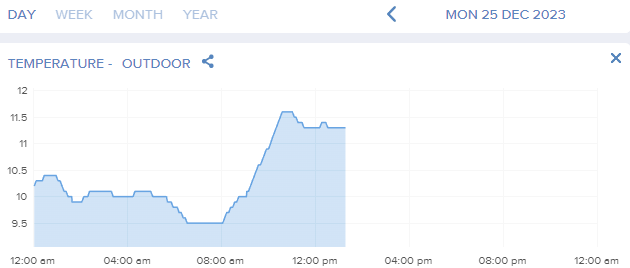
This kind of warmth on Christmas? (In fairness, the record is 17°C in 1982.) Thank you, Santa! Cassie has already gotten more than an hour of walks, to say nothing of the 3½ hours of walks she got earlier this weekend. It's raining now, but we'll go out again once it stops.